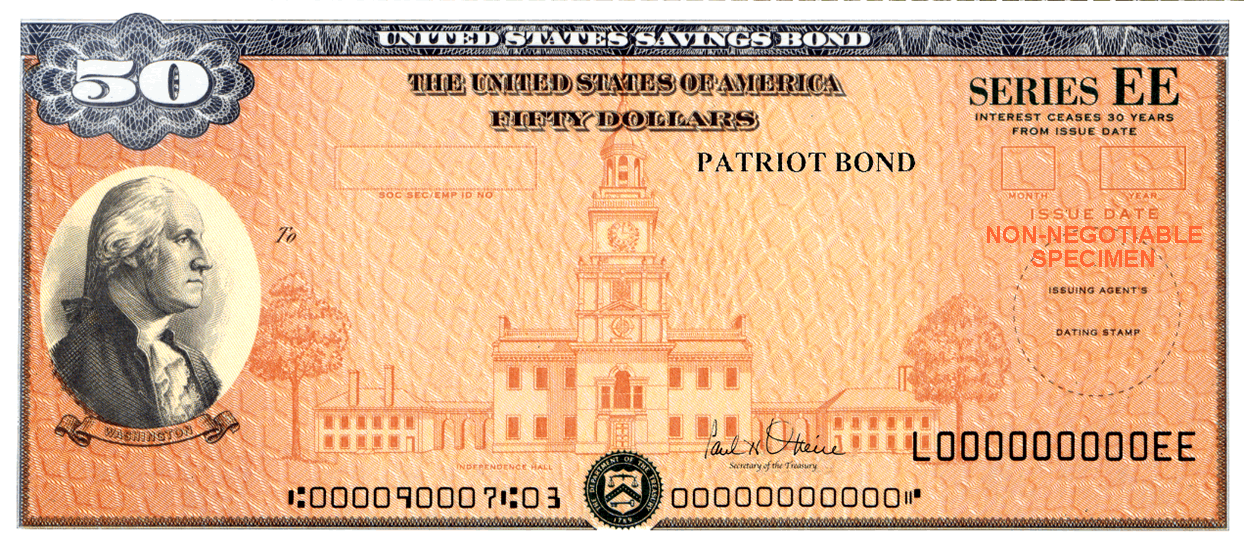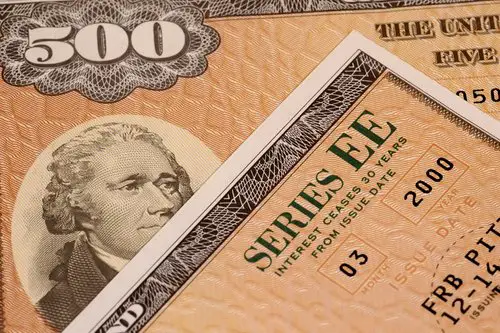When Do I Get My Bond Payments
In the vast majority of cases, companies will distribute bond payments every 3 or 6 months. Once the frequency rate has been ascertained, it will never change. In theory, the value of your investment will grow at a slightly faster pace if the bonds pay out quarterly, as you will have the opportunity to reinvest the payments into other ventures.
However, the difference will be minute unless you are looking to invest a substantial amount!
Either way, the coupon payments will be transferred from the company to the broker that you bought the bonds from, and then reflected in your account. You can then reinvest them into other revenue streams like stock trading, ETFs, mutual funds, or investment trusts or simply withdraw them back to your UK bank account.
How Do I Buy 10 Year Treasury
5 The U.S. Treasury sells 10-year notes and those with shorter maturities, as well as T-bills and bonds, directly through the TreasuryDirect website via competitive or noncompetitive bidding, with a minimum purchase of $100 and in $100 increments. Treasury securities can also be purchased through a bank or broker.
I Bonds The Ultimate Guide
Last Updated: 11min. read
I bonds are low-risk, inflation-linked savings bonds from the U.S. government. Here well look at why, when, where, and how to buy them.
Disclosure: Some of the links on this page are referral links. At no additional cost to you, if you choose to make a purchase or sign up for a service after clicking through those links, I may receive a small commission. This allows me to continue producing high-quality, ad-free content on this site and pays for the occasional cup of coffee. I have first-hand experience with every product or service I recommend, and I recommend them because I genuinely believe they are useful, not because of the commission I get if you decide to purchase through my links. Read more here.
Contents
Don’t Miss: Freegovernmentcellphones.net
Why Are Treasuries Important
Treasuries play a key economic role that other bonds do not. Their unique importance affects their price.
The Federal Reserve buys Treasury bonds to stimulate growth because the purchases inject money into the economy. Bond prices are driven higher because the central bank must pay enough to convince holders to sell.
Conversely, the Fed can sell bonds to tame inflation by taking money out of the economy. In this case, the supply of bonds increases and their prices fall. The reduced supply of money becomes more valuable and interest rates rise.
Treasuries also serve as a benchmark that determines how other interest rates are set. The 10-year Treasury note, or T-note, is particularly important. It serves as a benchmark for mortgage rates, corporate bond yields, and other financial calculations. It also reflects investor confidence. When confidence in the economy is high, prices for the 10-year drop and yields rise as investors look to other securities that can deliver higher returns. When confidence is low, bond prices rise and yields fall because safe, government-backed options become more attractive.
Choosing Bonds For Your Portfolio

When it comes to selecting bonds for your investment portfolio, you want to include a mix of corporate and government bonds with varying terms and coupon rates. Like with stocks, diversification is key! The easiest and most affordable way to achieve this is with a bond ETF, otherwise, you will have to select an asset mix that contains dozens or even hundreds of different individual bonds to properly diversify your capital. If youre interested in the environmental impact your finances have, you can also opt for adding Green Bonds to your portfolio along with your other bonds and bond ETFs.
You May Like: Free Government Grants For Dental Implants
When Is Interest Accrued On I
Interest is earned monthly and compounded semi-annually.
Our account balance reflects what we have earned minus the 3 month penalty .
Additionally, interest is earned for the entire month we own the bond. As long as the purchase clears before the end of the month, I-Bonds bought on the 28th will earn interest as if bought on the 1st.
What Are The Risks Associated With Investing In Bonds
As with any investment, buying bonds also entails risks:
- Interest rate risk: When interest rates rise, bond prices fall, and the bonds that you currently hold can lose value. Interest rate movements are the major cause of price volatility in bond markets.
- Inflation risk: Inflation is the rate at which the price of goods and services rises over time. If the rate of inflation outpaces the fixed amount of income a bond provides, the investor loses purchasing power.
- Credit risk is the possibility that an issuer could default on its debt obligation.
- Liquidity risk: Liquidity risk is the possibility that an investor might wish to sell a bond but is unable to find a buyer.
- Stocks tend to earn more money than bonds. In the period 1928-2010, stocks averaged a return of 11.3% bonds returned on average 5.28%.
- Bonds freeze your investment for a fixed period of time. For example, if you buy a 10-year-bond, you cant redeem it for 10 years. This creates the potential for your initial investment to lose value. Stocks, on the other hand, can be sold at any time.
You can manage these risks by diversifying your investments within your portfolio.
You May Like: Www.qlinkwireless.com/register
What Are Municipal Bonds
A municipal bond is a debt issued by a state or municipality to fund public works. Like other bonds, investors lend money to the issuer for a predetermined period of time. The issuer promises to pay the investor interest over the term of the bond , and then return the principal back to the investor when the bond matures.
How Are I Bonds Taxed
I bonds are exempt from state and municipal, but not federal, income taxes. If theyre used to pay for qualified higher education expenses, however, I bonds may be completely tax-exempt. Owners can pay taxes on the interest earned annually, at maturity or when the bond is cashed. The only state tax due would be estate or inheritance taxes.
The owner of the bond is liable for the tax payments, regardless of who purchased the bond. So if you received an I bond as a gift, you are responsible for the tax payments.
Also Check: Jobs Hiring In Los Lunas
How To Buy Treasury Securities
You can purchase Treasury bonds directly from the Treasury Department through its website, TreasuryDirect, or through any brokerage account.
Similar to other stocks and bonds, you can purchase Treasury bonds either individually or as a collection of securities through mutual funds or exchange-traded funds, or ETFs. If you have no particular time frame in mind for repayment, investing in a mutual fund or ETF may be more appealing because of enhanced diversification from owning a collection of bonds.
Unlike individual bonds, bond funds do not have a maturity date and can therefore be subject to greater volatility. In a bond fund, a fund manager buys and sells bonds with varying terms, so your returns can be subject to market fluctuations when you sell the fund, instead of providing a predictable income.
» Ready to start investing? See our picks of best brokerages for fund investors.
Buying individual bonds can make sense when youd like to pinpoint a specific time frame to receive the bonds repayment. Examples include using bonds as a lower-risk way to earn some interest on money set aside for a certain purpose think a wedding, tax or tuition payment next year or as a way to generate a predictable income stream in retirement.
T-bills are sold at a discount from the par amount, or face value, of the bill. Investors receive the full face value amount at maturity. For example, an investor could buy a T-bill for $950 but receive a face value of $1,000 at maturity.
Why Do People Buy Bonds
Investors buy bonds because:
- They provide a predictable income stream. Typically, bonds pay interest twice a year.
- If the bonds are held to maturity, bondholders get back the entire principal, so bonds are a way to preserve capital while investing.
- Bonds can help offset exposure to more volatile stock holdings.
Companies, governments and municipalities issue bonds to get money for various things, which may include:
- Providing operating cash flow
- Funding capital investments in schools, highways, hospitals, and other projects
Also Check: Congress Mortgage Stimulus For The Middle Class
Tax Implications Of Investing In Bonds
As with any investment, you must declare any interest you make from bonds as part of your income on your tax return, regardless of the type of bond. However, if you paid more for the bond than what you received when the investment matured, you would have experienced a capital loss and could deduct this from your income. If you ended up with more than what you paid for the bond, you would have experienced a capital gain, which is taxable and must be declared as income.
Rule #: For High Returns Choose Stocks Over Bonds

Theres a simple but powerful reason that most investors favor stocks over bonds: Every delivers a long-term return that corresponds with the risk it carries. In other words, risk is tied to return .
For example, holding cash in a carries little-to-no risk, but it also earns very little . Low-risk bonds offer fairly tepid returns as well. Stocks which carry short-term risk because they move up and down with the market tend to deliver better longer-term returns. Risk is tied to returns, and often they are relative to each other.
In an ongoing analysis conducted by New York University’s Stern School of Business, $140 invested in stocks in 1928 would be worth $167,000 by the end of 2011. About $100 invested in Treasury Bonds would be worth just $6,700.
Of course, there are rare instances where stocks lagged bond returns at various intervals . For the most part, however, stocks have been the highest returning asset class.
Although we don’t know how stocks will fare over the next few years, we have a pretty good idea about bonds: With interest rates already at stunningly low levels, there isn’t much room for rates to fall much lower. Bonds will have a predictable return making them less risky but stocks will have a higher return over time.
Recommended Reading: Peachtree City Job Seekers
Where To Buy Savings Bonds
CPBs can be purchased from:
- banks and trustTrust An account set up to hold assets for a beneficiary. A trustee manages the assets until the beneficiary reaches legal age.+ read full definition companies
- investmentInvestment An item of value you buy to get income or to grow in value.+ read full definition firms
- directly from Canada Savings Bonds:
- online
CSBs can be purchased from:
- work if your employer offers a payroll savings programPayroll savings program A way to have money taken automatically from your pay and put into a special savings account. The idea is that if you dont see the money, you wont miss it or spend it.+ read full definition
Learn more
Visit the Canada Savings Bond website for more information on how to buy savings bonds.
5 quick steps to get started
Fast fact
If you register with the Canada Savings Bonds website, you can track your investments online.
The Canada Savings Bond Program Is Discontinued
Due to the high cost of administration, the Government of Canada stopped issuing Canada Savings Bonds and Canada Premium Bonds in 2017. Unredeemed CSBs or CPBs will still be honoured visit www.csb.gc.ca to learn more. Government bonds are currently available in the form of Government of Canada Real Returns Bonds, provincial bonds and municipal bonds. You can also buy bonds issued by domestic and foreign corporations. See below for more details.
Don’t Miss: Government Help For Legally Blind
How Are We Taxed On I
Taxed when cashed. We will owe tax on all interest earned. However, we only owe them when the bonds are cashed in, meaning we are in control of when these taxes are paid.
Tax-exempt? All interest earned is local and state tax-exempt. Interest earned can be federally tax-free if used for qualifying educational purposes while under certain income limitations.
Why Do I Need Bonds In My Portfolio
Bonds are essential to have in your portfolio to balance your investment allocations, as well as provide a source of passive income.
Bonds typically move in the opposite direction of stocks. So when the stock market goes down, the prices of bonds tend to increase, and vice versa. By having a mix of both bonds and stocks in your investment portfolio, you can reduce the amount of volatility you experience as an investor.
Bonds also provide an excellent source of passive income for your portfolio. Because bonds guarantee a rate of return on your investment paid on a fixed schedule, theyre perfect for investors who want a reliable source of passive income. Bond ETFs tend to make their interest payments monthly, which means youre paid more frequently than stocks which typically pay on a quarterly schedule. This is the reason many people tend to adjust their portfolio to have more bonds as they near retirement.
Recommended Reading: Government Jobs Vegas
Four Channels For Investment In Municipal Bonds
Buying municipal bonds follows more traditionally with the standards in the bond market overall. Thus, most investors buy municipal bonds through brokerage accounts. However, in the municipal bond world, investors have a few choices. The MSRB suggests the following four channels for individual investors looking to buy municipal bonds:
These four categories can overlap slightly in their offerings. Serious investors looking to go deep in the municipals market may want to work with a full-service broker dealer or RIA that specializes in municipal bond investing which can allow for the potential opportunity to take part in primary issuance of municipal bonds. Generally, institutional investors comprise the majority of primary municipal market buyers. Most investors however will be happy with trading municipal bonds on the secondary market which can be done through full service brokers, RIAs, and self-managed accounts.
Set Up A Treasurydirect Account
If you meet the qualifications, you can proceed with opening a TreasuryDirect account. This account allows you to purchase bonds as well as Treasury bills, Treasury notes, Treasury bonds and TIPS right from the government.
For individuals setting up a TreasuryDirect account, youll need a taxpayer identification number , a U.S. address of record, a checking or savings account, an email address and a web browser that supports 128-bit encryption.
Youll enter your information at the prompts and can establish the account in just a few minutes. Youll set up a password and three security questions to help protect your account.
Children under age 18 cannot set up a TreasuryDirect account directly, but a parent or other adult custodian may open an account for the minor that is linked to their own.
Also Check: Best Jobs For History Majors
Types Of Treasury Bonds
The term “Treasury bond” often gets used to generically refer to all government securities. But there are several types of Treasuries. The difference lies in their maturity, which is the time span it must be held before the principal is repaid.
Treasuries come in three maturities:
- Treasury bonds : Known in the investment community as “the long bond,” T-bonds generally mature in 20 to 30 years.
- Treasury notes : These mature within 2 to 10 years. The widely tracked 10-year T-note frequently acts as a benchmark for interest rates on consumer loans, especially mortgages.
- Treasury Bills : T-bills have the shortest maturity available. They can mature in just a few weeks or a few months, with the longest maturity term being up to a year.
Buying Bonds: Where To Begin

Buying bonds can prove a little trickier than buying stocks, because of the initial amount required to begin investing. The face value of most bonds is $1,000, though theres a way around that. You have a few options on where to buy them:
-
From a broker: You can buy bonds from an online broker. Youll be buying from other investors looking to sell. You may also be able to receive a discount off the bonds face value by buying a bond directly from the underwriting investment bank in an initial bond offering.
-
Through an exchange-traded fund: An ETF typically buys bonds from many different companies, and some funds are focused on short-, medium-, and long-term bonds, or provide exposure to certain industries or markets. A fund is a great option for individual investors because it provides immediate diversification and you dont have to buy in large increments
|
in free stock for users who sign up via mobile app |
Don’t Miss: Local Government Employee Credit Union
